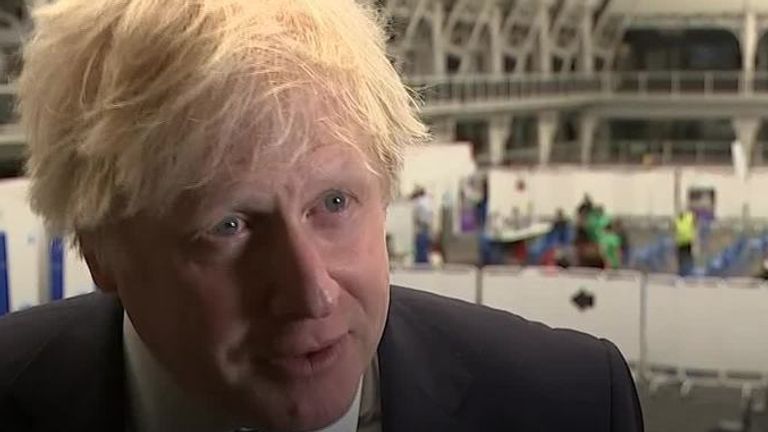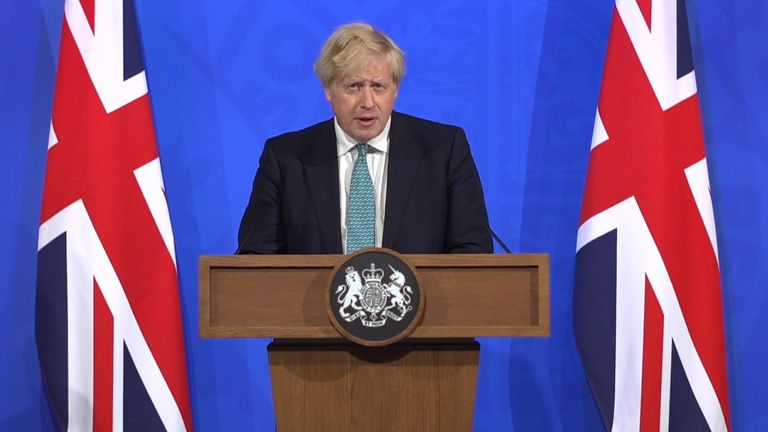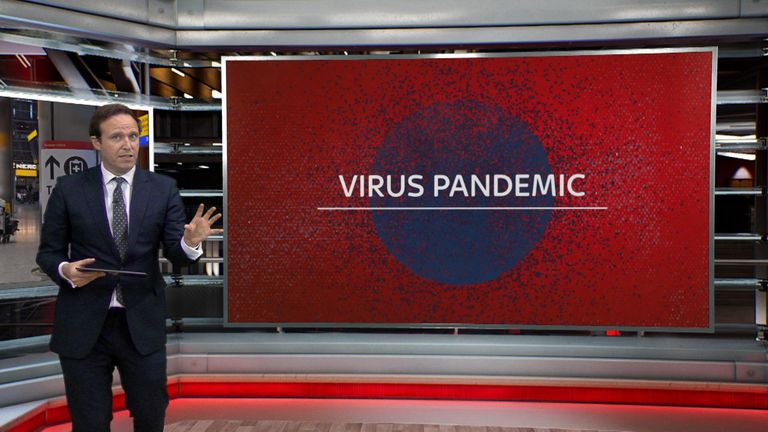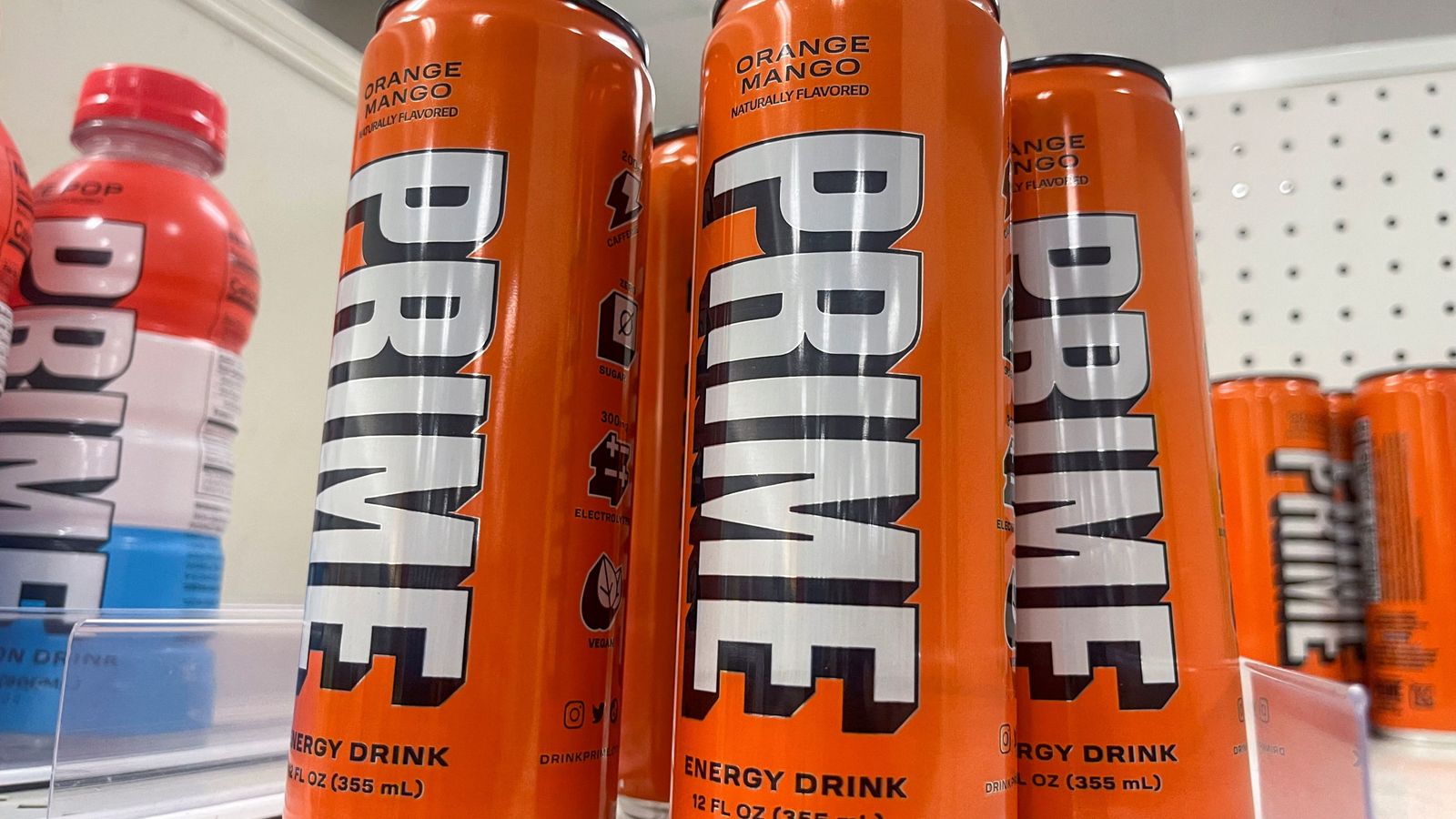Boris Johnson is being warned by scientists that a surge in vaccinations in COVID hotspots may not be enough to halt the spread of the Indian variant – and that he should not have relaxed lockdown rules this week.
The prime minister has said he is keeping the variant under close watch, adding “we’ll know a lot more in a few days’ time”, suggesting he will not wait until the next review on 14 June if he needs to take further action.
That review is due for a week before final step of the government’s roadmap, when it’s hoped all legal limits on social contact are lifted on 21 June.
Bolton, where the Indian variant outbreak is worst, has seen a doubling in cases per 100,000 people in the last week.
However, the PM is facing warnings from Tory MPs including Sir Graham Brady, chairman of the 1922 committee of backbench MPs, not to delay the final step of lockdown lifting next month or reimpose restrictions.
Scientists have told Sky News the surge strategy is designed to “buy as much time” as possible to increase vaccine take-up, but have also warned it might not be quick enough to contain the spread and poses other dangers.
It comes as Sky News learnt the first alarm bells over the Indian variant were sounded as long as four weeks ago.
Urgent discussions were being held in Whitehall nearly two weeks ago over what to do about the Indian variant, with some advisors urging ministers not to proceed with this week’s stage three lockdown lifting on Monday.
Some scientists believe that decision to unlock was a mistake, while a Tory source said some ministers were sympathetic to the idea the PM was pressing ahead too fast.
Discussions about the potential severity of its impact were held ahead of the decision on Friday 7 May to designate it a “variant of concern”.
One source said in these discussions there was “concern raised by ministers about the impact on businesses and other workplaces of having unvaccinated workers fall sick in large numbers”.
Nevertheless, four days later on Monday 10 May, Mr Johnson brushed off concerns, saying: “At the moment I’m feeling very positive about [the roadmap].”
The true depth of Whitehall’s concern only became clear last Thursday, when Mr Johnson said he was now “anxious” about the variant.
On Friday, the prime minister finally admitted the final stage of the roadmap on 21 June could not be guaranteed.
However, he nevertheless went ahead with Monday’s step three unlocking, which saw individuals allowed to meet one another socially indoors.
Mr Johnson and ministers have pushed vaccination “surges”, combined with greater testing and encouraging people to isolate where necessary, to try and combat the Indian variant.
The surge vaccination strategy involves flooding an area with vaccines, with mobile units, and people going door to door to track down the unvaccinated.
In Bolton this has meant going one step further and inviting all over-18s to come for a jab, in defiance of national policy not to make a blanket offer of a jab those under 36.
However, some scientists advising the government are warning that the vaccines only take effect three weeks after the jab is given, meaning this gives the virus time to spread.
They also warn that if they pour additional vaccines into certain hotspots, this will mean shortages elsewhere – disrupting the rollout programme. This will put more lives at risk, they say.
One scientific advisor said: “It might take three to four weeks to immunise Bolton, but the epidemic has been doubling every week. So just using vaccination may not be enough to contain it, meaning you may actually have to put places into lockdown.”
The vaccine programme is already under strain by the decision not to give the Oxford-AstraZeneca vaccine to the under-40s, putting pressure on the supply of Pfizer.
A vaccine surge would work if the variant was concentrated in one or two areas, but Matt Hancock, the health secretary, revealed yesterday it has already spread to 86 different local authorities.
Scientists say that despite the success of the vaccine rollout, which has seen more than 57 million doses dispensed, any plan which allows the disease to spread through remaining unvaccinated population will still result in a big spike in hospitalisations.










